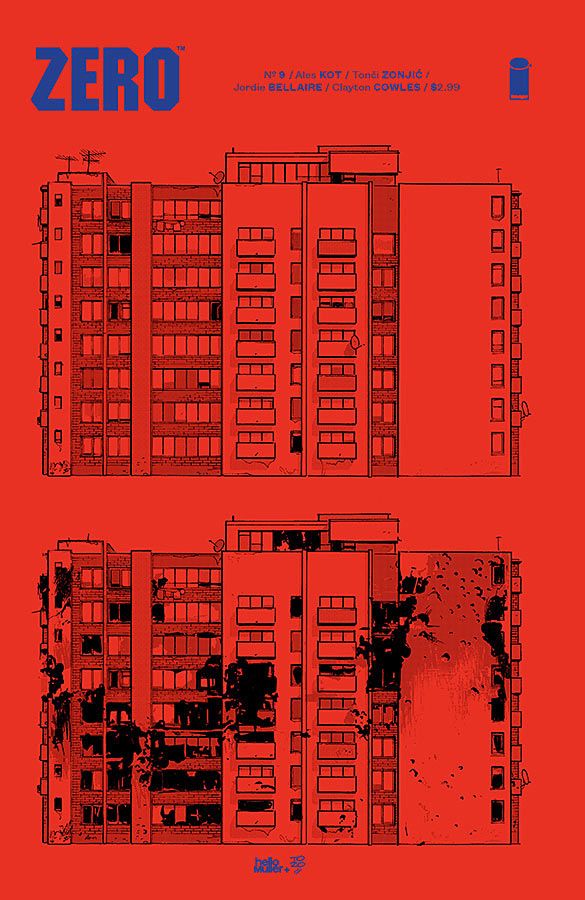"Zero" #9 is yet another beautifully drawn and succinctly scripted installment in this criminally under-read series by Ales Kot and Tonci Zonjic. The issue is a flashback to the violent circumstances of Zero's birth, which means it also introduces Marina Stoikovic, the mother Zero names in issue #5. Taut, horrific and unforgiving, "Zero" #9 is only kept from real excellence by its problematic approach to point-of-view.
Before I get into point-of-view, it must be said that issue #9 is a moving story that left me sick and uncomfortable. It is, like every issue of "Zero," executed with remarkable restraint and power, and I'll get into that. However, skill aside, the core plot of issue #9 is troubling. Though the issue is named "Marina," it isn't actually about Marina's feelings or experiences at all. Her trauma is used only as a vehicle for Zizek's; the reader is shown his pain, but never hers. In addition, the storyline of a rape victim who prioritizes her baby over herself, with its unoriginality and outdated body politics, is pretty offensive in and of itself. The character is not given space to suffer or heal in her own right, and the cheapness of treating her as a mere vehicle detracts from the otherwise formidable power of the issue.
However, Kot manages to redeem the tiredness of his plot in the execution. This story isn't simply about sympathy; it's about complicity. When his associates ask how Zizek could be with "tainted meat" like Marina, and Zizek says, "What can I say, I was always a community player," the cowardice and complicity of the joke are left to hang, disgusting, in the air. Kot resists the urge to contextualize or justify it, with the same restraint that always makes "Zero" work so well. For his part, Zonjic draws Zizek with the same insufferably sure smirk throughout the issue; whether he's lying to arms dealers, claiming to know the baby's gender or playing along with the rebels, he always thinks he's in control.
The shattering of that illusion is devastating and unforgiving. Its impact is amplified by Kot and Zonjic's deliberate, dramatic pacing and panel choices. They're not afraid to spend space on scene setting, abstract panels or even just total blackness. Zonjic zeroes in on little things, incongruous things -- hands, gun muzzles, shot glasses -- and then zips through major plot points in the same amount of page space. This is why "Zero" always feels so effective. It's comics as short story -- all visceral detail, with dialogue and plot like a short knife.
Jordie Bellaire makes perhaps the eeriest move of the issue with her light pink coloring when the couple is together. It's horrible in its innocent pastel; looking at it, I immediately knew something was going to really, really wrong. Clayton Cowles isn't given too much to do with lettering, since Kot's as spare as ever, but his work is clean and thoughtful. For instance, he only lets one word bubble break the space between panels, and it's Zizek's overarching problem: "I prefer not to think about it."
I continue to root for "Zero," with its slow and gut-wrenching storytelling, but "Marina" left me queasy in other ways. Hopefully the next issues can maintain this level of artistry without the problematic plotting.

